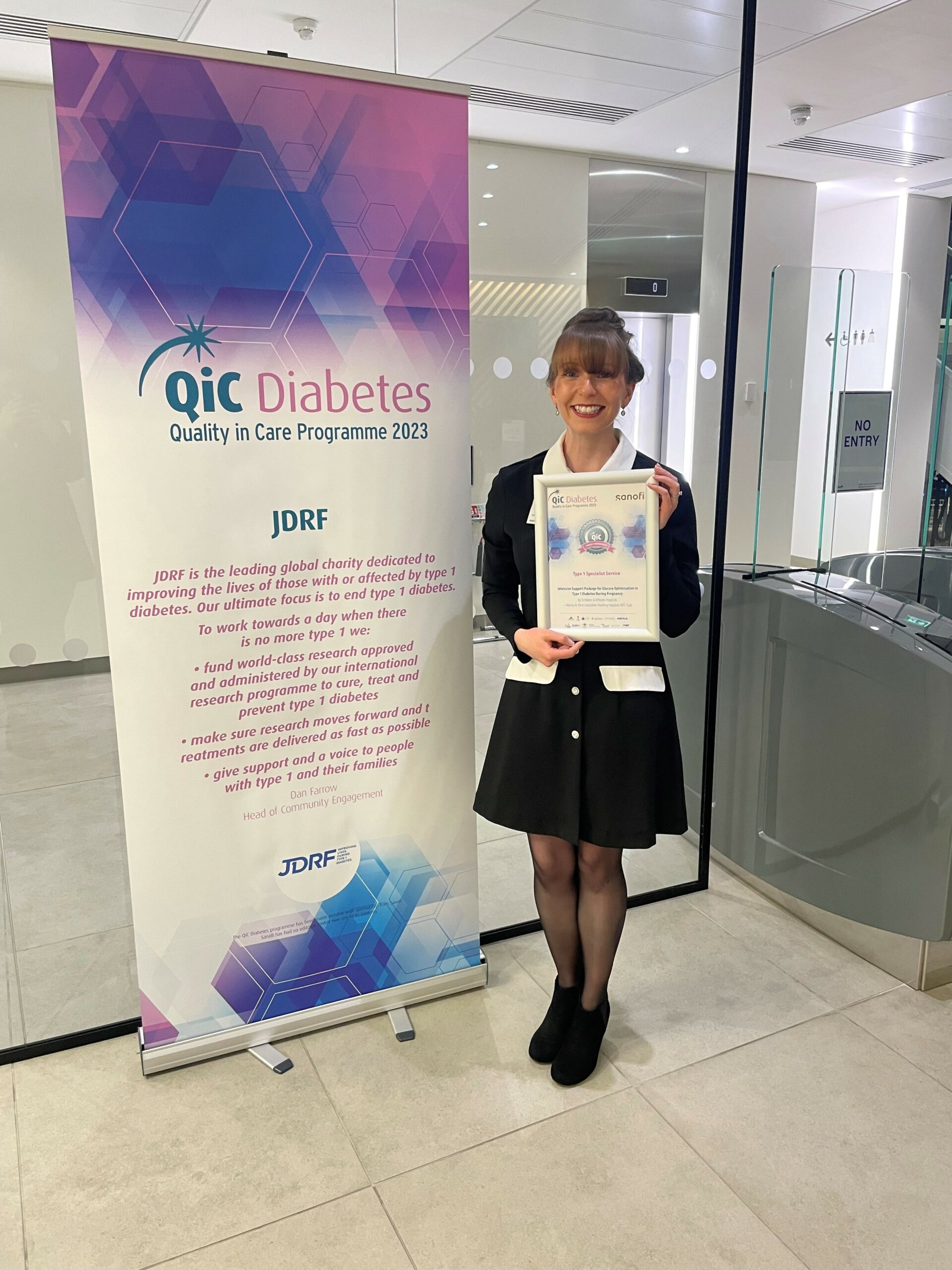Preventative interventions in early pregnancy to reduce risk of gestational diabetes development
Catherine Gallagher - Senior Diabetes Specialist Dietician, St Helens & Knowsley NHS Teaching Hospitals

NIHR Doctoral Clinical and Practitioner Academic Fellowship with the Person-Centred Complex Care (PCCC) & Improving Population Health (IPH) themes
Background: Worldwide prevalence of gestational diabetes varies between 15-25% and is considered one of the most common complications of pregnancy. Rates of gestational diabetes are increasing in the UK, affecting an estimated 35,000 pregnancies per annum. Gestational diabetes can cause serious complications for babies, including large for gestational age (LGA) babies, increased caesarean section use, shoulder dystocia, neonatal hypoglycaemia, neonatal intensive care admissions, and stillbirth. For mothers, there is an increased risk of pre-eclampsia, obstetric intervention, future gestational diabetes, and future type 2 diabetes, as well as an association with mental health conditions such as anxiety, antenatal depression, and post-traumatic stress disorder (PTSD). Gestational diabetes places a significant clinical and psychological burden on women and their families, as well as a financial implication for the NHS.
Risk factors for gestational diabetes include a BMI above 30, maternal age over 40 years, gestational diabetes in a previous pregnancy, a previous baby weighing over 10lb, ethnic background (South Asian, Black African, Black Caribbean), and previous weight loss surgery. Interventions implemented before or in early pregnancy could decrease the likelihood of developing gestational diabetes. This study will be conducted in St Helens, a geographical area in North West England affected by significant health inequalities, including high prevalence of diabetes and obesity, levels of deprivation, and lower life expectancies. As part of the development work for this project, I have engaged with local commissioners and Healthwatch St Helens, who have helped me to think about how we can provide inclusive NHS services and target hard-to-reach groups for patient and public involvement (PPI) work.
Research aims and objectives:
• To establish the current evidence base by reviewing and critically appraising the literature, and
• To engage with pregnant women and their families who have valuable lived experience of gestational diabetes.
Methods:
• Conduct a rapid evidence conversion summary (RaCES) project with support from researchers at UCLan, and
• Undertake further PPI work, including presenting at the ARC Public Adviser Forum, and have organised local PPI group meetings with patients who have had gestational diabetes in the last 12 months to gain insight of lived experience.
Patient and public involvement: I was successful in obtaining a public involvement fund from the Research Design Service, which was used to hold meetings with pregnant women and their partners to explore their experiences of living with gestational diabetes. Individuals shared their experience of diagnosis and accessing appointments and agreed that providing advice in early pregnancy to those at risk of developing gestational diabetes to encourage them to implement changes was a good idea.
I secured further funding from the diabetes department to carry out further PPI meetings with women to explore the proposed plans to advise women in early pregnancy about the potential risks of gestational diabetes. I have recruited locally in clinics and advertised meetings at local Children’s Centres and St Helen’s Maternity Voice meetings, and plan to run these meetings in November 2023. I hope to recruit a PPI representative or group from these sessions to continue to support this research at all stages of the project, including the application process and the PhD itself if successful.
Potential impact: This internship will support me to complete a NIHR Doctoral Clinical Academic and Practitioner (DCAF) Fellowship application for Summer 2024. If successful, I anticipate that my PhD project during the DCAF will consist of co-developing an intervention to reduce the risk of gestational diabetes with various stakeholders. The developmental work needed for the intervention will consist of both qualitative and quantitative research and is needed to gain a better understanding of factors affecting targeted behaviour. I plan to do a pilot of the intervention prior to running a feasibility study (e.g., trying out the study will a small number of people to gain a sense of their experience and establish if anything needs to be adapted prior to running a feasibility study at a future stage, perhaps as part of an advanced fellowship).
Achievements and dissemination activities: Throughout this internship, I have had the time and opportunity to build on the person element of the fellowship application. These are as follows:
• Invited speaker at the Diabetes UK Professionals Conference in March 2023 – “The importance of patient and public involvement (PPI) in diabetes research projects”
• Invited speaker at the Diabetes UK Discovering Leadership Programme in June 2023
• Presented at Edge Hill Universities Research Hour in July 2023
• Led an application on behalf of the diabetes antenatal team in July 2023 – “Intensive support package for women with TIDM during pregnancy”
• Shortlisted for the Quality in Care Diabetes awards in September 2023
• Received the highly commended award for “Specialist T1DM Antenatal Service” at the Quality in Care Diabetes awards on behalf of the diabetes antenatal MDT in October 2023
• Presented at the ARC NWC Public Advisers Forum in October 2023
• Invited to deliver a two-hour guest lecture for midwifery students at their research symposium at Edge Hill University in November 2023
For more information, contact catherine.gallagher2@sthk.nhs.uk